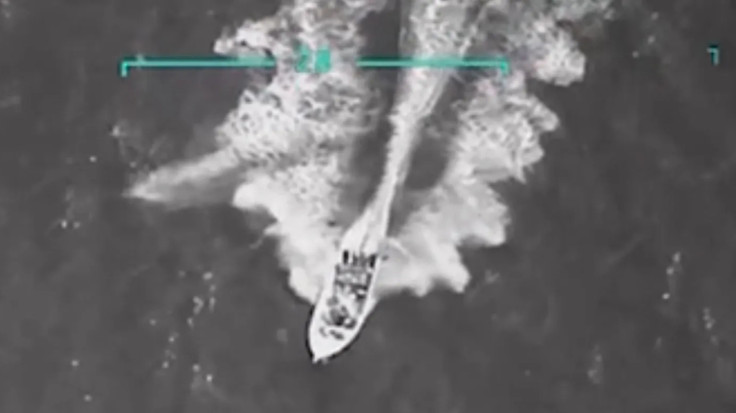
Congressional Republicans are growing frustrated with the lack of information or legal justification for the Trump administration's strike against alleged drug-smuggling boats off the coast of Venezuela, according to a new report.
NBC News detailed that members from both parties have left briefings frustrated with the lack of information, and some were visibly upset with the answers they received. "The Republicans were mad that the briefers were unable to answer questions about legal basis for the operation," one source told the outlet.
President Donald Trump announced on Tuesday that the U.S. has struck a fifth vessel off the coast of Venezuela as his administration continues ramping up pressure on the Maduro regime. The attack killed six people, Trump added. Overall, 27 people have been in the attacks, the administration noted.
The report also noted that even Republicans who back the attacks are concerned about the precision of the intelligence used to determine targets and the chance that U.S. citizens could be killed in a strike.
However, a Defense Department spokesperson pointed to the fact that most Republicans in the Senate voted last week against an initiative that would block strikes without congressional approval.
Moreover, Pentagon spokesman Sean Parnell said Congress has been kept fully informed about the strikes and the legal authorities involved through several briefings. "The Department of War has given numerous briefs and notifications to Congress that have extensive details of the policy, operations, tactical intelligence, and authorities invoked," Parnell told the outlet.
Even though the sources who spoke to NBC News didn't dispute there were briefings, they said they left unsatisfied with the information provided.
Lawmakers are also voicing concern about the possibility that strikes inside Venezuela could lead to civilian casualties. Some have concern about the legality of the strike, with others claiming they are plainly illegal.
In the meantime, cartels in the Caribbean are reportedly adapting their smuggling routes to avoid the deployment of U.S. warships and strikes.
A new report by The New York Times detailed that the area has again become a hub for drug-trafficking organizations following increased enforcement at the U.S.-Mexico border. As a result, some Colombian cocaine is being outed through Venezuela before being repackaged in Trinidad, Jamaica, or the Dominican Republic.
From there, drugs are hidden in cargo shipments or moved by fast boats toward Europe, Australia, and other high-price markets, the outlet noted.
Strikes have not eliminated trafficking, just rerouted the flow, regional officials said. In Trinidad and Tobago, illegal air drops from South America have increased, with larger vessels collecting floating bales at sea. In Jamaica, smugglers are dividing shipments into smaller loads and concealing drugs in food containers to reduce losses if intercepted.
© 2025 Latin Times. All rights reserved. Do not reproduce without permission.





